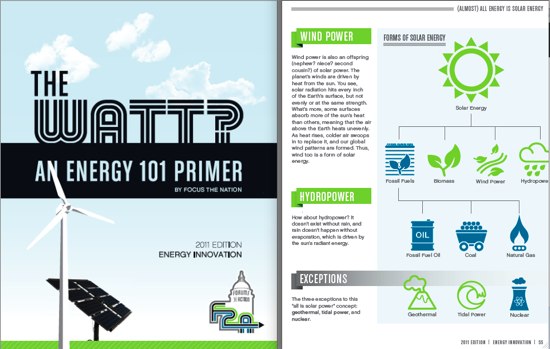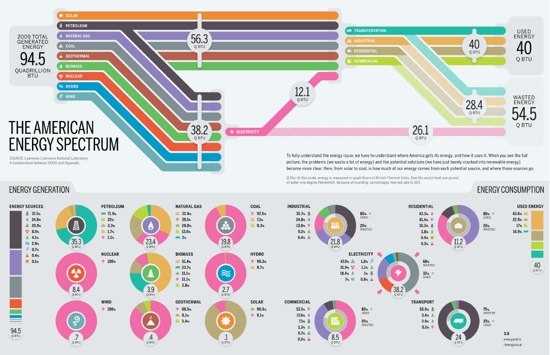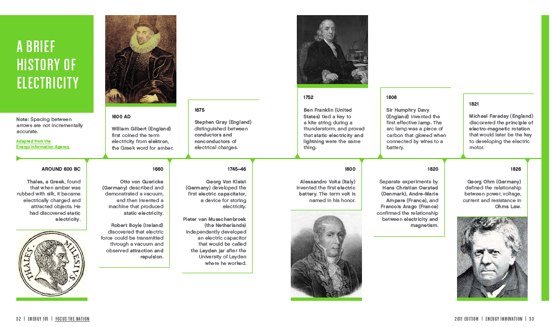
A few years ago, over 1,000 Americans responded to a Public Agenda survey about energy. The results were startling. Nearly four in ten American adults could not name a single fossil fuel. Over half of respondents couldn't name a renewable energy source.
A few years before that, the National Environmental Education Foundation asked 1,503 American adults how much they knew about energy. Though 75 percent responded that they knew "a fair amount" or "a lot," just 12 percent passed a basic energy quiz, correctly answering such questions as how most of our electricity is generated, whether gas mileage is rising or falling, and what the fastest growing sector of the economy is with regard to energy consumption. (That these two studies from 2009 and 2002 respectively are the most recent that I could dig up on the subject of "energy literacy" is quite possibly as revealing as their findings.)
These troubling numbers illustrate a dangerous trend in our society. That, despite the fact that energy is one of the world's largest industries and that we're constantly debating energy issues, our society is woefully energy illiterate.
This is a problem, because our nation's (and our world's) energy challenges are intimately intertwined with our great environmental, economic, health, and social challenges. Yet as a general public, we're not equipped with the basic knowledge to foster an informed discussion.
Few people -- even hardcore climate and clean energy advocates -- stop to think (or to really understand) what's happening behind the that light switch or ignition. (Let alone think for a moment about the energy it takes to deliver that Facebook page to their MacBook screen or a tomato to their plate.)
I'm working with Focus the Nation to help change that. We're creating a resource that aims to demystify energy -- the science, the economics, the technology, the history. You can consider it a primer or a user's manual. Or a sort of 21st-century textbook. Basically, we want it to be a complete Energy 101 education in language and charts and graphics that we all can understand. (You shouldn't feel like you have to dig out your old high school physics textbook or sift through mind-numbing EIA reports to get your energy knowledge base up to speed!)

The basic mission here is to combat energy illiteracy, with the basic reason being that you can't properly advocate for what you don't fully understand.
A really short history of how the project came to be should pretty well illustrate why we feel it's necessary. For a few years now, Focus the Nation has been training young student leaders, developing their practical skill sets to drive clean energy solutions on their campuses and in their communities. Last January, when I was on staff at GOOD Magazine, I helped produce their "Energy Issue," which was heavy on the infographics and the basic explainers. Garett Brennan, the executive director of Focus the Nation, reached out and asked if they could use the issue in their trainings. We all got to talking and decided that there was a lot more to be taught than was possible in the cozy confines of a printed periodical. So we developed the idea for The WATT? An Energy 101 primer.
Last fall, we published the first edition, a basic PDF document which was fairly comprehensive, but the production of which was rushed to the point of absurdity. This year, we're revising and expanding that "Beta" effort, and also -- crucially -- turning it into an interactive e-book version. (We're taking particular inspiration for the e-version from interactive educational resources like Al Gore's "Our Choice" app and E.O. Wilson's Life on Earth digital textbook.)
There will be the basics of energy science -- all the stuff you've forgotten from high school. There will be economics and geography and technology lessons.

There will be interactive infographics and timelines and glossaries and "guest speakers."

We're also expanding the audience reach this year. Reactions from Focus the Nation's student trainees were beyond encouraging, and pretty much everyone who saw the thing said that it should be made more widely available. So here we are.
Like any big, unfunded idea these days, we've turned to Kickstarter to build the e-book version of The WATT? If all goes as planned, by September we'll have a basic PDF version available for free download to the general public, a print-on-demand hard-copy book, and this fancy e-book, chalk full of interactive infographics, videos, "guest lectures," and everything else constructive that we can think of.
This is a truly open effort, and we'd be thrilled for suggestions and feedback from anyone interested. We know that producing a basic energy primer won't solve our big energy challenges, but we do hope that we can do our small part to help combat energy illiteracy. First comes broader understanding, and then comes transformative action.